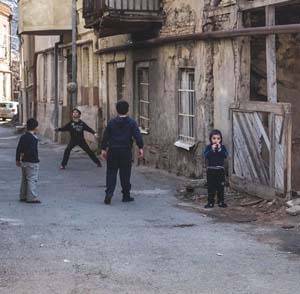
It was Janet Dobson who first suggested that I was degree material. I was 23 at the time and working as a linkman outside the Odeon cinema in Leicester Square. Although the job had its perks – a rather fetching brown and gold uniform and regular tips from cinemagoers who needed help parking their cars – it was not an occupation that offered great hope of advancement. And, as Janet pointed out, an ability to stand upright outside a building for five hours at a time hardly qualified me for any other position.
“You should try for Birkbeck College,” urged Janet. “They take people without the usual qualifications on their evening degree courses.” As I undid the gold buttons of my uniform that night, I did so with a new resolve.
The application form seemed straightforward enough until I reached the final paragraph: “State your principal hobbies.” What hobbies? Hobbies meant collecting. And had I ever collected anything? Stamps? Not really. Butterflies? No. Early Victorian etchings? Certainly not.
But what about bus tickets? When I was about 11, a classmate, Ken Rogers, told me a secret. Apparently if you collected a bus ticket on which all the numbers added up to 21 – say 4, 8, 7, 2 – then you could show this ticket to any girl and she would immediately grant you special favours. In Ken’s measured words, “She’ll be up for it.”
Even if Ken had been right, I could hardly expect that my Birkbeck invigilators would regard my clumsy numerical attempts to seduce third-form schoolgirls as somehow equivalent to a lifetime collecting butterflies or Commonwealth stamps.
Neither, in all conscience, could I cite my junior school collection of birds’ eggs. That had now become a hobby that dare not speak its name. For although we had a tacit agreement that we would only take one egg from any of the nests that we raided, it was difficult to evade the charge that our concerted efforts were doing much to further the imminent extinction of the Pied Flycatcher.
I did remember one other activity that might just pass muster as a hobby. From the age of nine I’d assiduously racked up a complete set of Catholic indulgences. Back then a whole range of devotional activities came with a promise of relief from eternal damnation. So if you regularly attended Holy Mass on the first Friday of nine consecutive months, you were assured by serious theologians that you would evade everlasting Hell.
Once again, however, this seemed to fall short. It was difficult to imagine a vice-chancellor, or even a registrar, admitting an applicant on the grounds that his hobby would eventually ensure eternal life in the blessed company of saints and archangels.
It was Janet who came to the rescue. She asked her graduate friends how they had filled in their applications. Yes, they’d all been required to state a hobby and many had opted for brass rubbing. There was a good reason. Whereas other hobbies required some basic knowledge – an ability, say, to translate the foreign words on postage stamps or to know the fine distinction between a Red Admiral and a Clouded Skipper butterfly – brass rubbing required nothing more than a sheet of tracing paper and the tomb of some long-forgotten saint in the local parish church.
“Brass rubbing?” queried the Birkbeck registrar. I was ready for him. “Oh yes,” I said. “You only need a sheet of tracing paper and the tomb of some long-forgotten saint in your local parish church.” “Well, Mr Taylor,” he said. “You have not exactly impressed the panel with the news that you wish to study psychology because you are interested in other people. But, on balance, we are happy to offer you a place on the grounds that you should enjoy a great deal of fellowship with your other first-year undergraduates. None of them may have any expertise in the psychological processes of learning, memory or motivation. But to a man and a woman they are all brass rubbers. You never know, perhaps they will let you share their tracing paper!”
This piece is from the New Humanist winter 2021 edition. Subscribe today.

